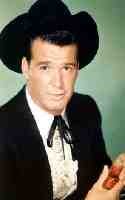While reading a blog entry about Artificial Intelligence this morning it suddenly struck me how the Turing Test, a commonly advocated test for determining whether a computer program has achieved intelligence, is like supreme court judge Potter Stewart’s test for pornography, “I don’t know how to define it, but I know it when I see it.”
In the Turing Test a computer program converses by teletype with a human being who does not know whether it is a human or computer on the other end of the line. The computer program passes the test if the humans with which it interacts thinks they are talking to another human being.
It is strange and telling that no better test for intelligence has been proposed, since this is a test for imitating human beings rather than intelligence itself. On the original Star Trek television show an alien named Dr. Spock was portrayed as much more intelligent than humans in many ways but his lack of human type emotions and experiences was a constant barrier between him and the rest of the crew. It is obvious that as intelligent as he was he would never pass the Turing Test. As much as he desired to have a good relationship with the other crew members his inability to simulate human emotions enough to pass was a constant irritant.
As a computer programmer I know that completely understanding the task to be programmed is necessary to successfully create the program. The less completely you understand the problem and its possible solutions the less successful your program will be. It is true that in some situations you can start off without complete knowledge and learn more about the problem as a result of trying things that fail. Eventually you may gain enough knowledge through repeated failures to finally succeed but at that point you understand the problem and solution thoroughly.
When we fully understand intelligence and consciousness we will be able to create computer programs that are intelligent and conscious and not one minute before. When we reach that point I am sure that we will have much better tests for intelligence than the Turing Test. There is much more to intelligence than acting like a human being.



No comments:
Post a Comment